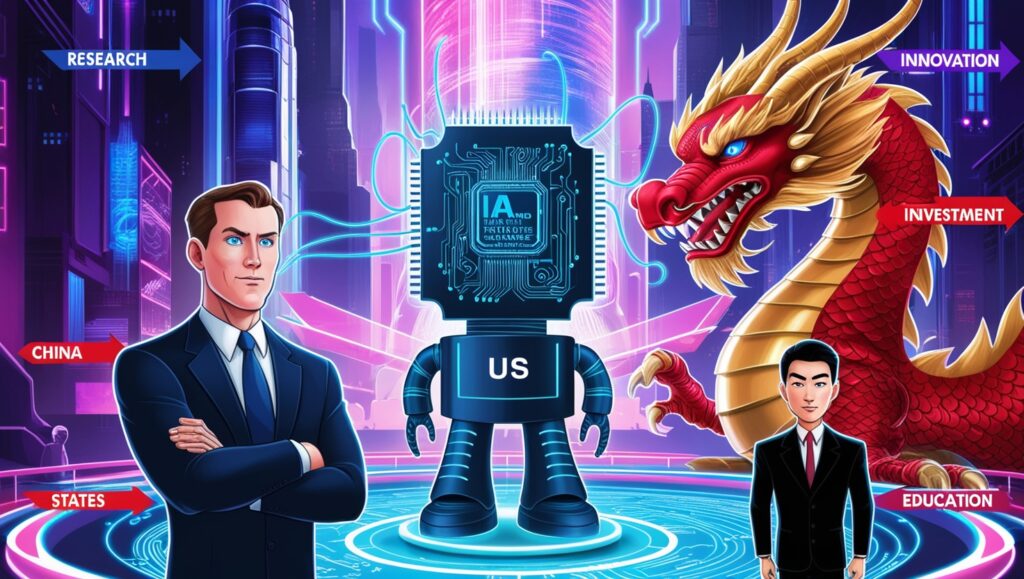Artificial intelligence is making its way to corporate office leadership, decades after technology started to replace and disrupt manufacturing positions.
Recent weeks have seen layoffs at Google, UPS, and Duolingo added to the nearly daily rising list of white-collar layoffs. Even while there are still relatively few jobs that are directly lost to generative AI, some of these businesses and others have connected employment losses to new productivity-boosting technology like machine learning and other AI applications.
A greater percentage of white-collar employment may soon be eliminated by generative AI, according to signals from management consultants and company executives. Generative AI goes beyond automating repetitive jobs and making predictions based on patterns in data, unlike earlier automation technology waves. It has the ability to produce material and combine ideas, producing information that millions of people currently do in front of computers.
According to business leaders and experts, this includes managerial positions, many of which might never return. They forecast that the rapidly advancing technology will overhaul or replace current work performed across the corporate ladder in a variety of industries, from chemicals to technology.
According to Andy Challenger, senior vice president of outplacement agency Challenger, Gray & Christmas, many critical-thinking, white-collar jobs are at risk of being replaced or enhanced by this wave of technology.
A portion of the current job losses can be directly attributed to the advancements in artificial intelligence. Other businesses are laying off employees in order to increase their investment in artificial intelligence and to meet increased operational demands.
However, corporate executives claim that AI may have different effects on future headcounts. Executives at the chemical company Chemours anticipate a reduction in the number of hires needed in the future.
According to Chief Executive Mark E. Newman, As the business expands, they won’t need to make as many layoffs as they would have to.
AI-related job cuts climb
Challenger’s research indicates that since May of last year, businesses have blamed AI for more than 4,600 job losses, mostly in the tech and media sectors. The organization calculates that since many businesses haven’t directly connected layoffs to AI adoption in their layoff announcements, the total number of AI-related job losses is probably larger.
In the meantime, a growing proportion of professionals are now utilizing generative AI in their day-to-day jobs. According to Oliver Wyman Forum, the research arm of management consulting firm Oliver Wyman, which conducted the survey, the majority of more than 15,000 employees in industries ranging from financial services to marketing analytics and professional services said they were using the technology at least once a week in late 2023, a significant increase from May.
Compared to 54% of blue-collar professionals who had integrated generative AI into their work, over two-thirds of those white-collar employees claimed that their productivity had increased as a result.
As it reduces expenses and increases its investments in artificial intelligence (AI) research, Google last month let go of hundreds of workers in business divisions including hardware and internal software tools. In the same week, the language-learning software provider Duolingo said that 10% of its contractors had been let go and that artificial intelligence will take over some of their content creation responsibilities.
Businesses outside of the technology sector have started making similar AI shifts.
UPS announced that it will eliminate 12,000 jobs, mostly from management and a small number of contract workers, and that even if the package-shipping industry recovered, those roles were unlikely to reappear. The business has increased the amount of machine learning it uses for tasks like figuring out how much to charge clients for shipments. The company’s pricing department has so required fewer personnel.
According to UPS spokesperson Glenn Zaccara, the usage of generative AI and similar technologies is also transforming some occupations at UPS by lowering physical stress and repetitive tasks.
Breakdown of middle management
According to the Oliver Wyman report, management hierarchies will probably change as AI usage increases. As more of their jobs become automated, entry-level employees will probably start off worst. Therefore, entry-level jobs in the future will resemble first-level managerial positions more.
According to the data, the cascade impact may flatten middle management levels, which serve as a training ground for senior leadership positions.
Compared to 43% of middle managers and 38% of first-line managers, over half of senior white-collar managers assessed for the study believed generative AI may automate their employment.
Business executives from all sectors of the economy, however, anticipate that new technology will enhance and elevate some white-collar jobs, enabling staff members and managers to perform more significant work for their organizations and personally.
That’s already occurring, according to officials at Prosus, a multinational technology investment organization with headquarters in the Netherlands, as AI automates more activities for its personnel.
Software developers, engineers, and other professionals may complete tasks twice as quickly, according to Euro Beinat, global head of AI and data science at Prosus. Many of these workers are now able to perform somewhat different tasks and more than we were before able to, which is one of the side consequences.
For example, software developers used to be asked to handle the coding by Prosus’s web designers. According to Beinat, they can now do it on their own. Software engineers can concentrate more on design and intricate code in the interim. He said it is a seniority bonus.
Over the last three years, the DuPont subsidiary Chemours has trained nearly a thousand office and lab personnel in AI applications. Because of their training with no-code analytic tools, finance professionals who previously had to spend a lot of time copying and pasting between systems and spreadsheets to generate particular reports now do it much faster, according to Matt Abbott, chief enterprise transformation officer at Chemours.
Instead of spending their time on system queries all the time, the finance team can now focus on other tasks that are vital to the business, according to Abbott.








